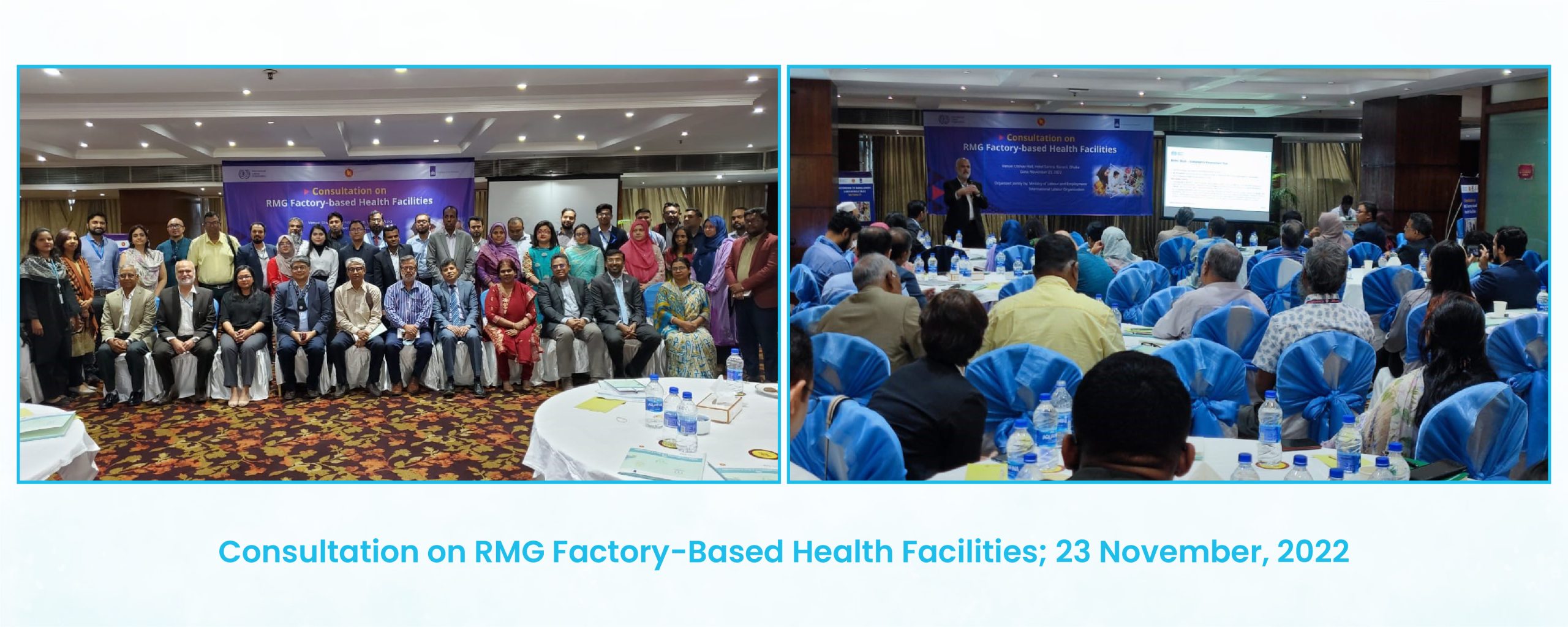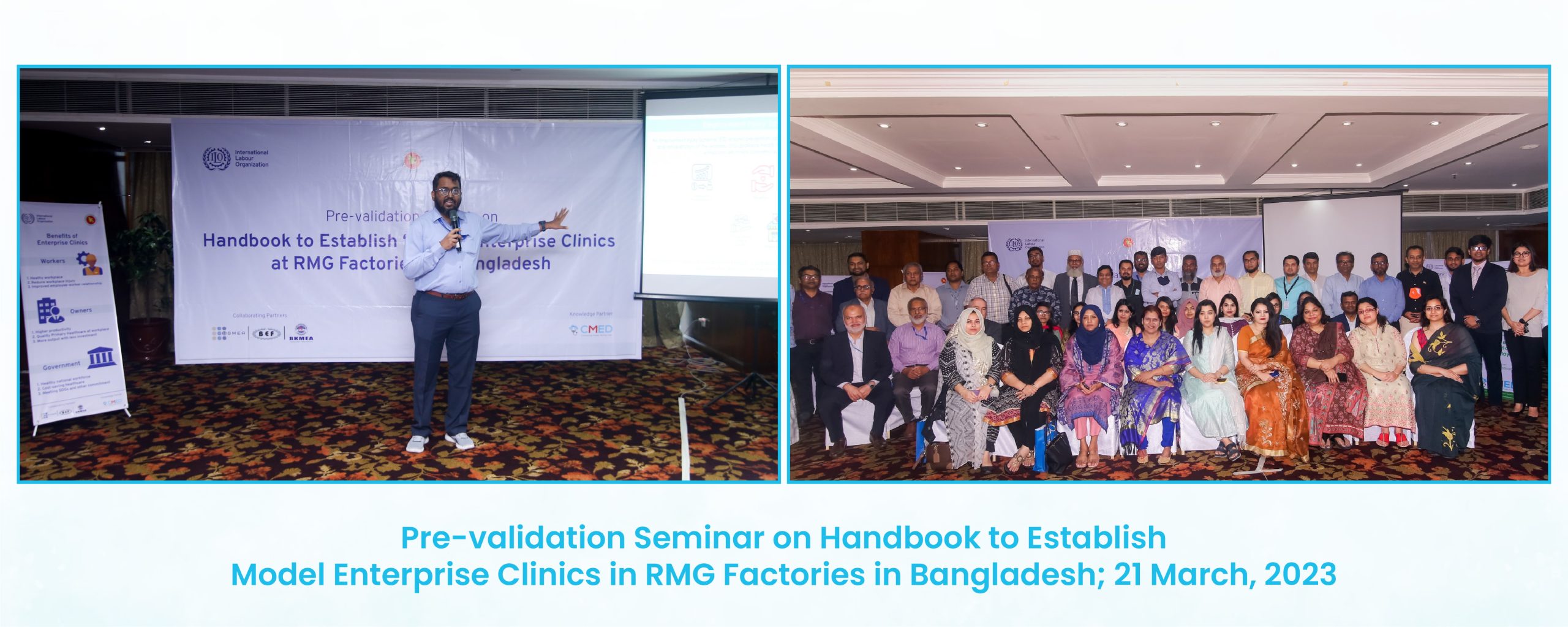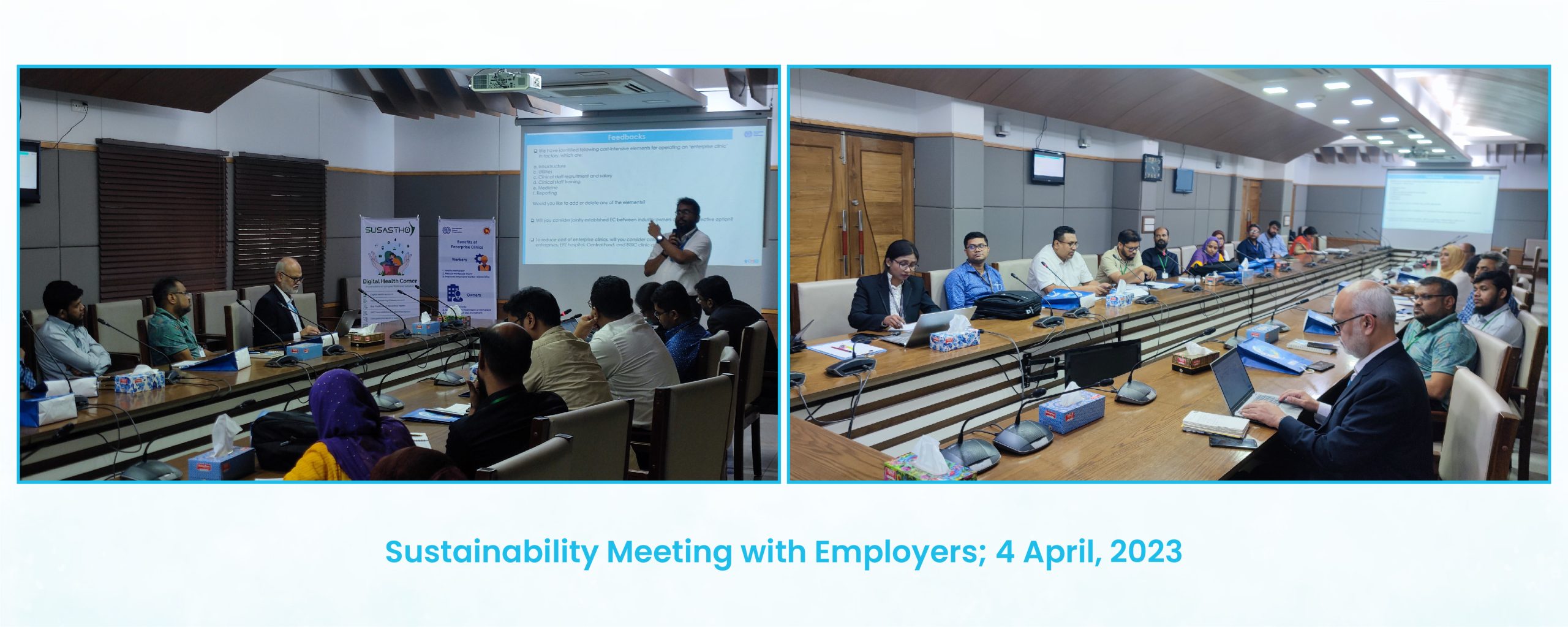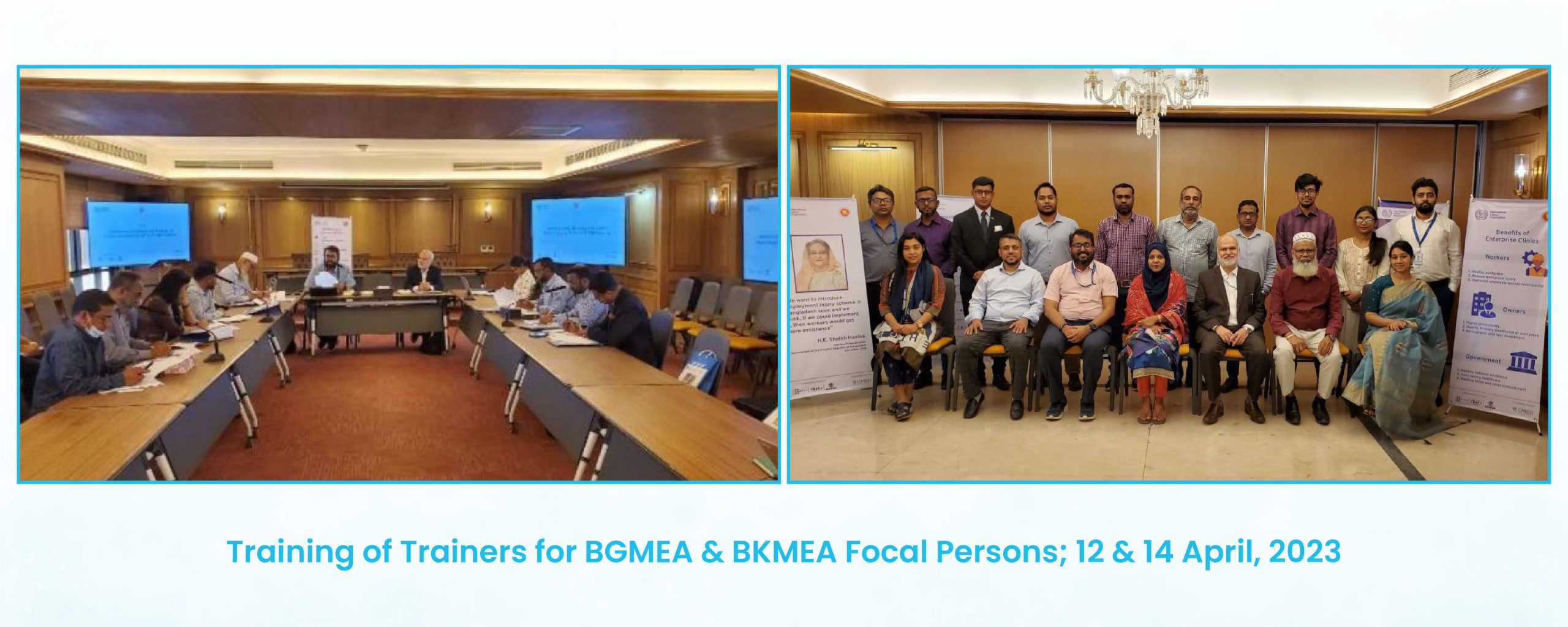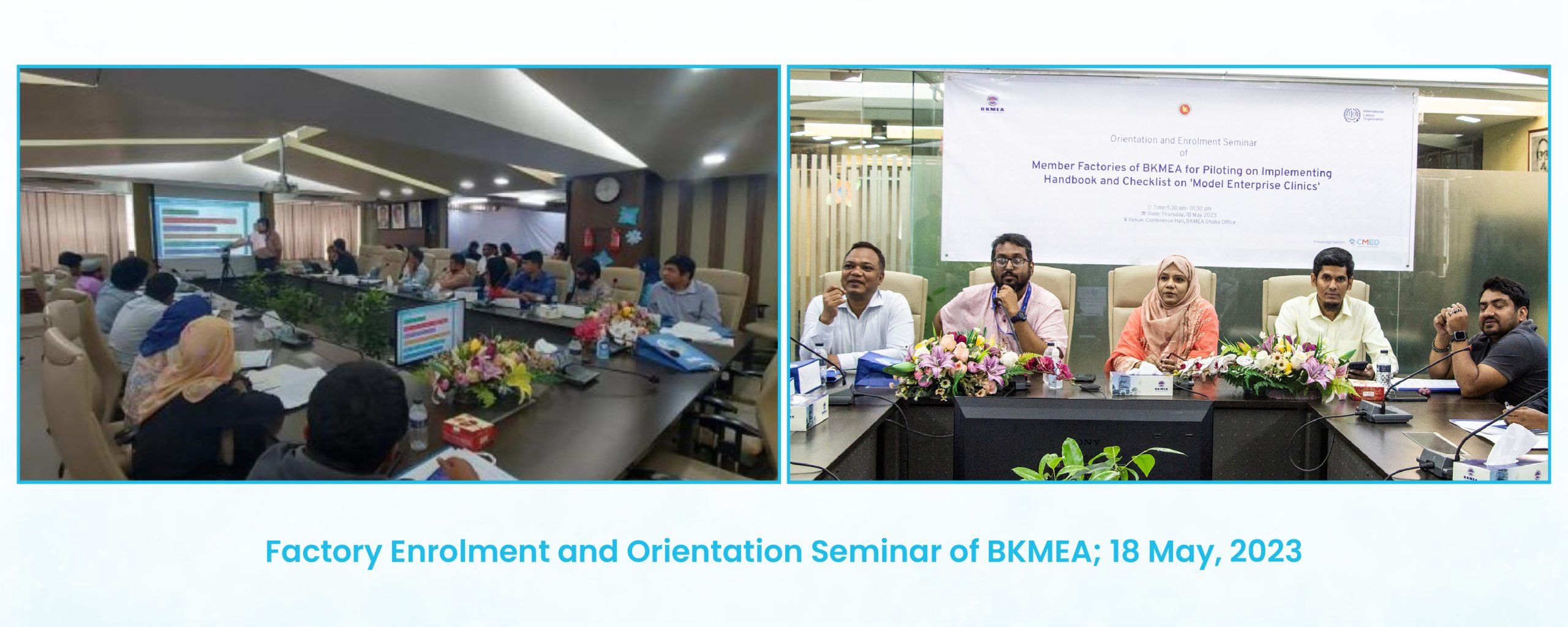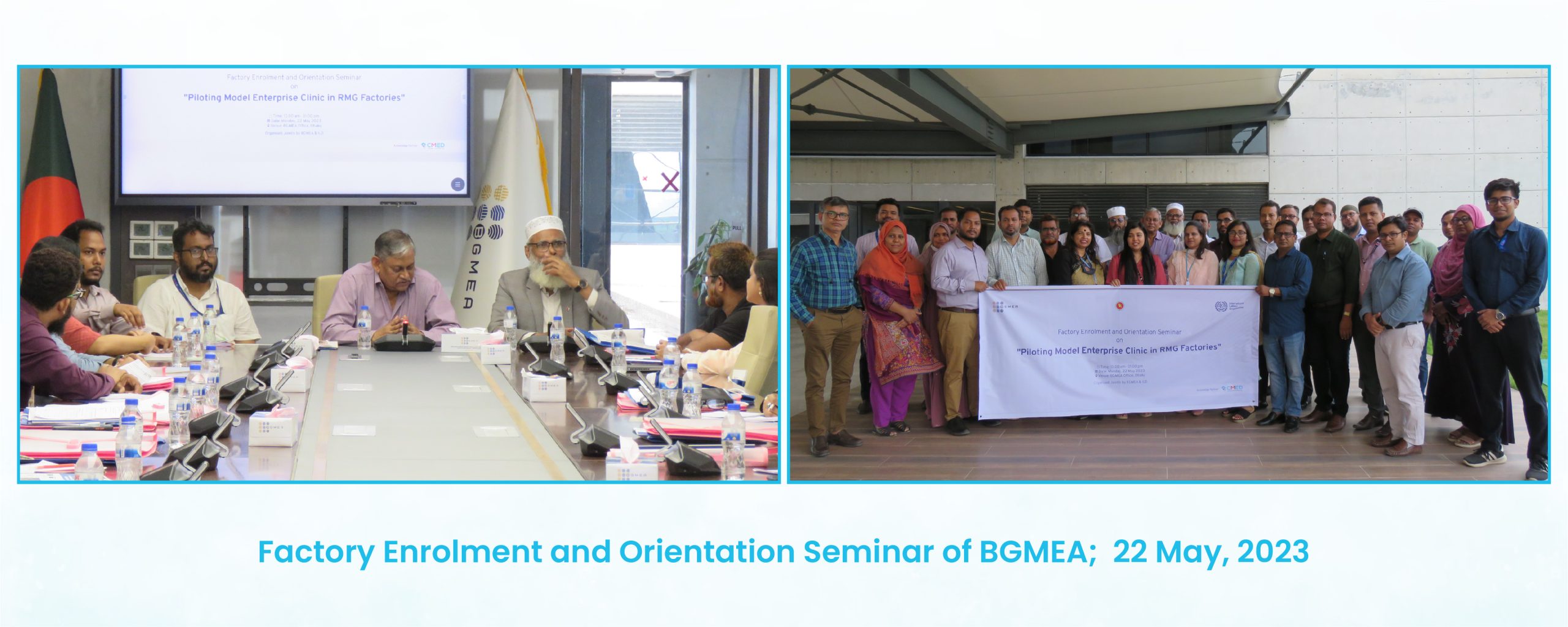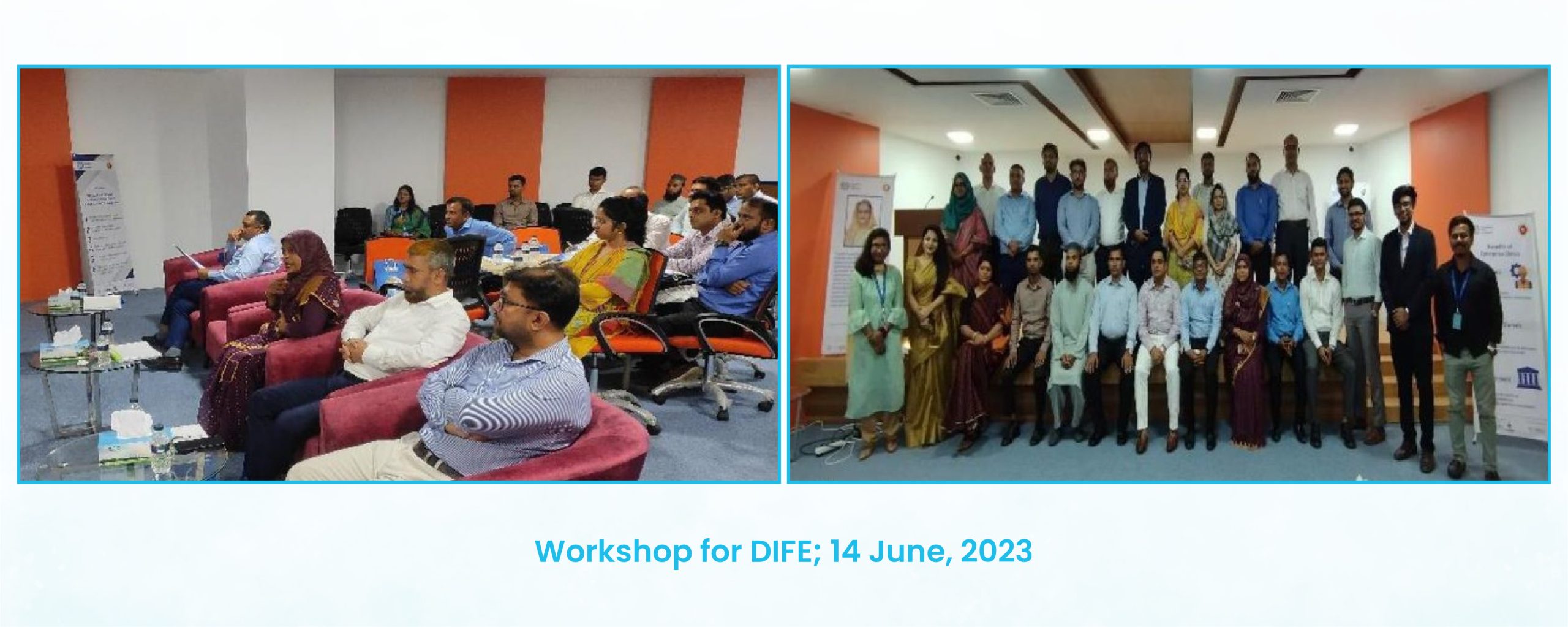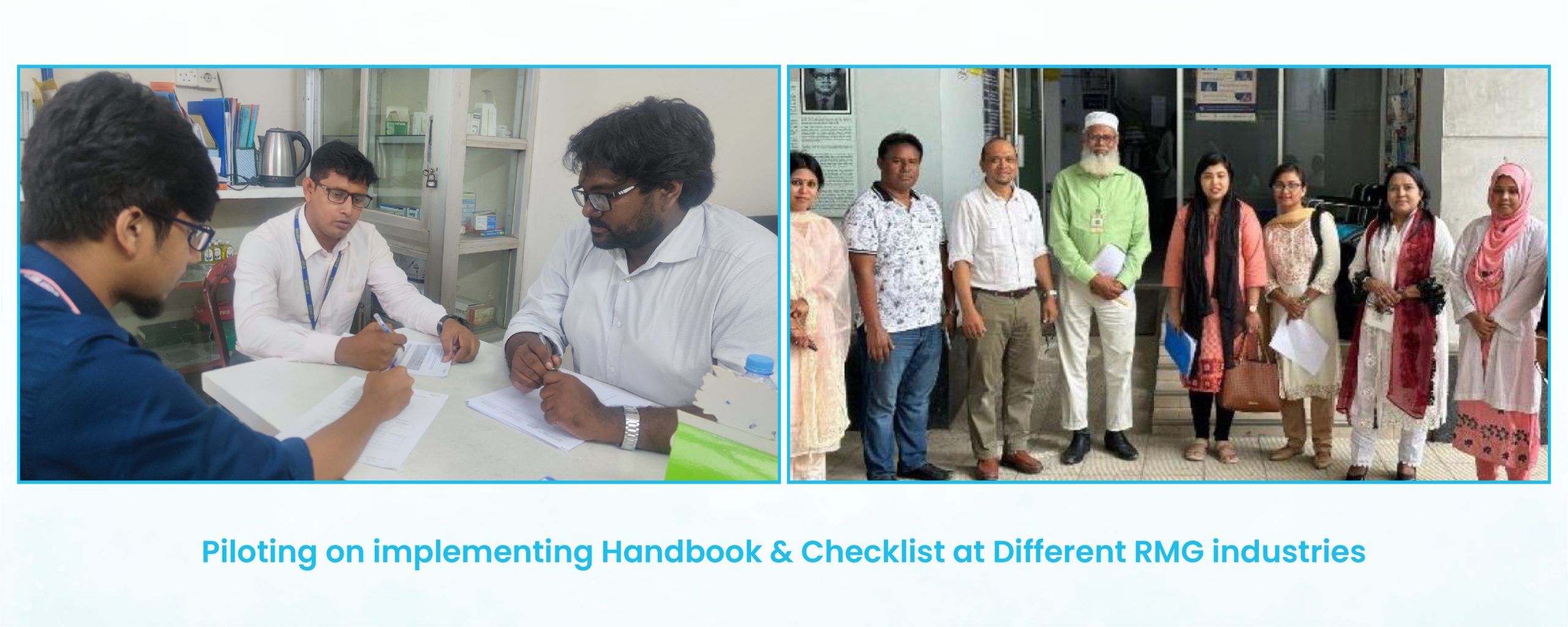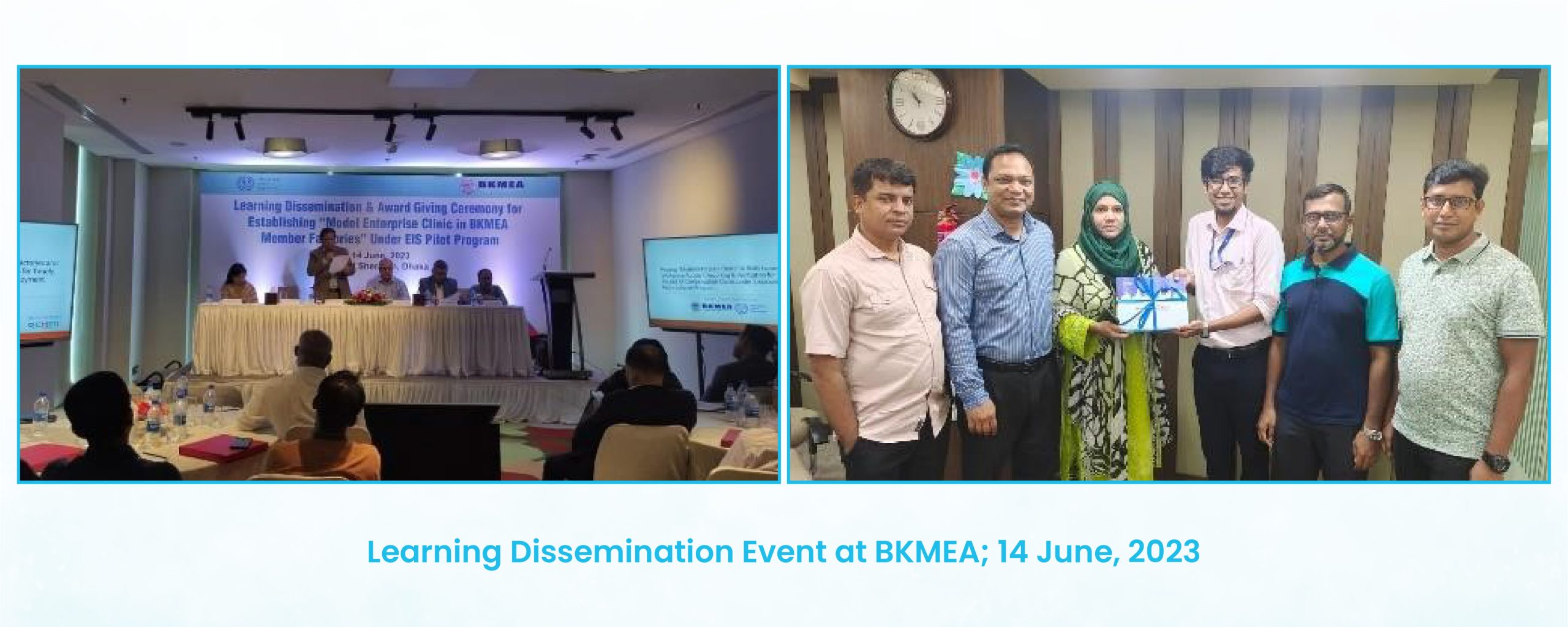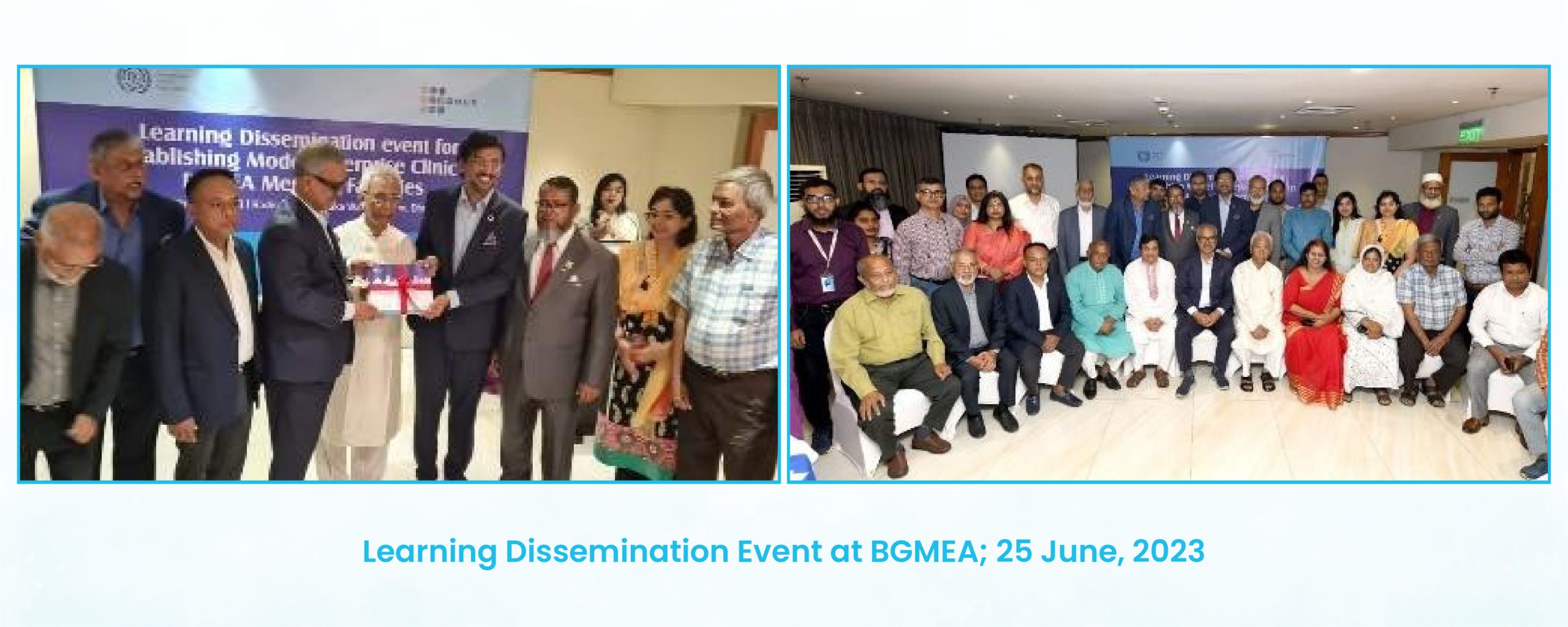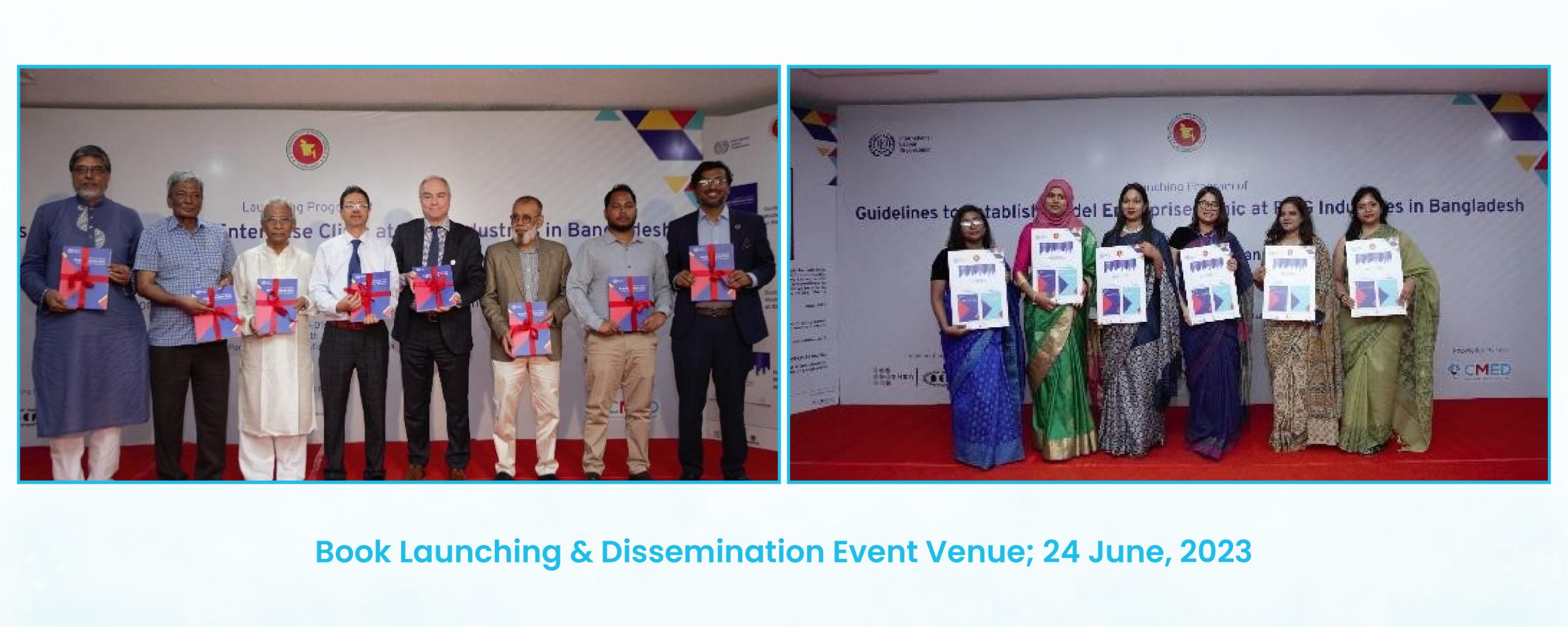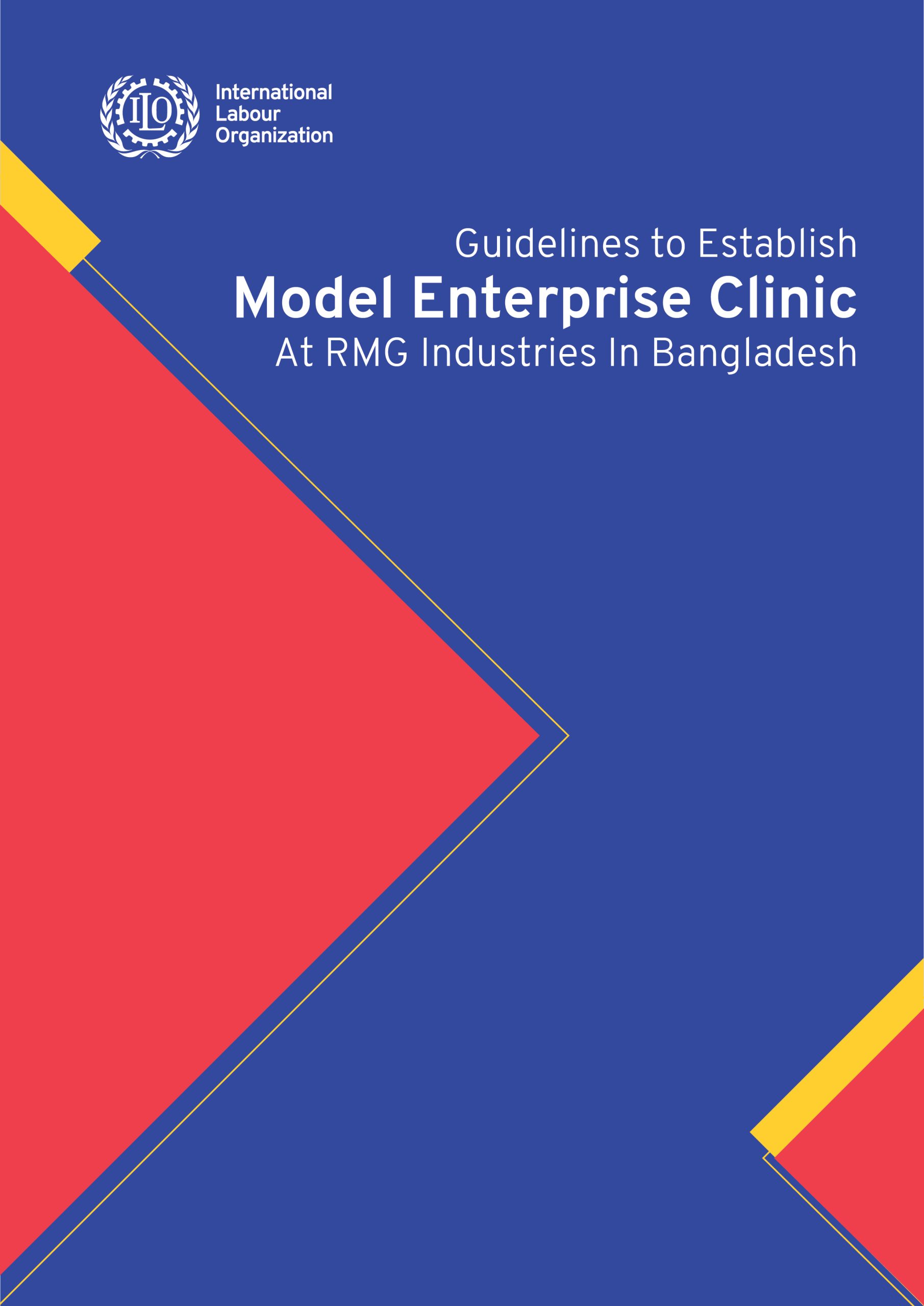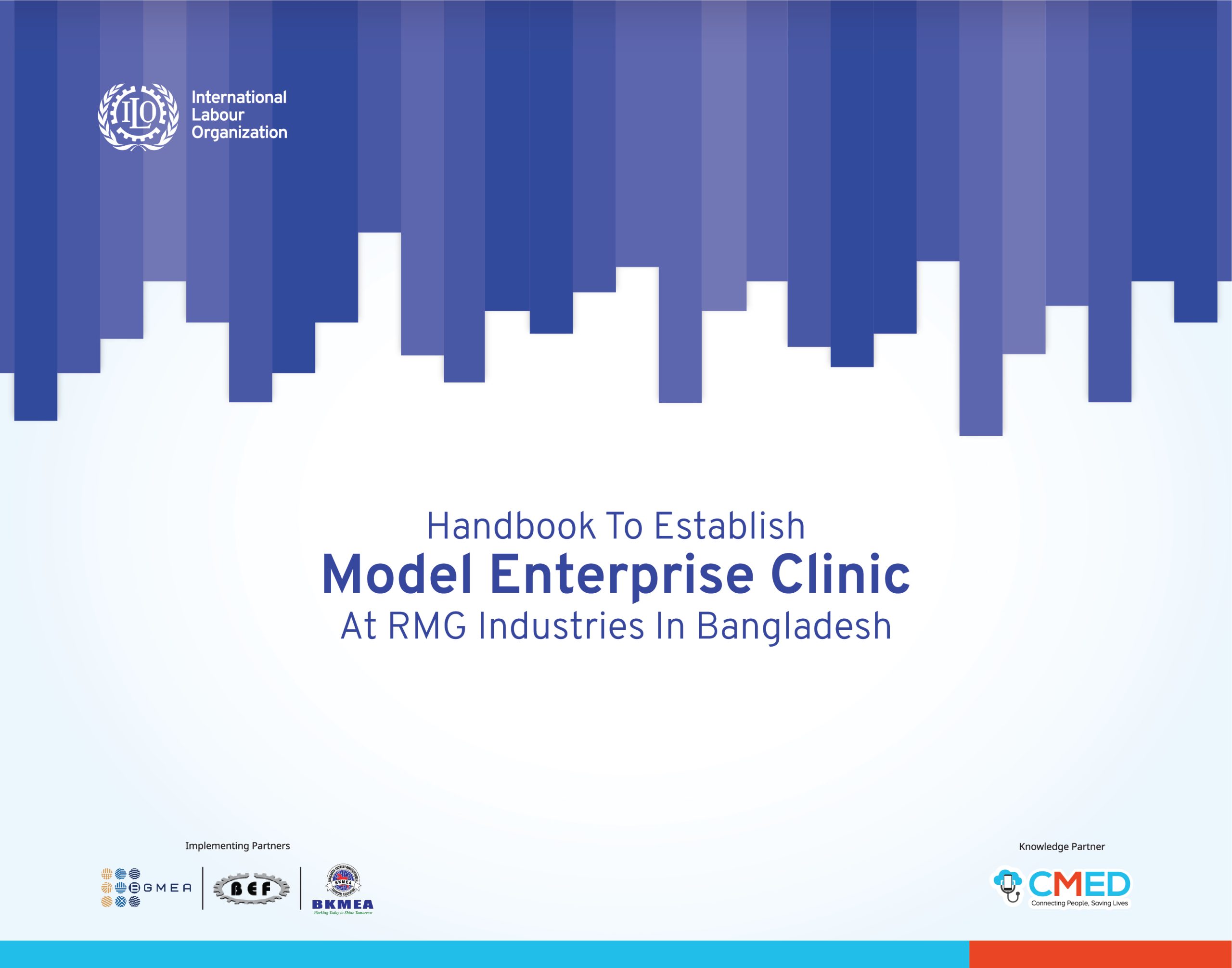Foreword To The Project
The International Labour Organization (ILO), in collaboration with the Ministry of Labour & Employment and employers’ associations in Bangladesh, including BGMEA, BKMEA, and BEF, and workers organizations including NCCWE and IBC, is working to establish effective Enterprise Clinics within factories. CMED Health Limited, as a knowledge partner, has developed a handbook with checklists to guide employers in creating and maintaining model enterprise clinics. This handbook provides guidelines for implementing Enterprise Clinics in factories. The guidelines are based on relevant provisions in the Bangladesh Labour Act and Labour Rules and aim to ensure compliance with government regulations and also address the specific needs and challenges of each size category. The handbook with checklists offers stakeholders’ suggestions as good practises for healthcare facilities within factories, emphasizing the importance of aligning with government regulations and considering the unique requirements of different production processes. The ready-made garment sector in Bangladesh is the primary focus of this initiative due to its significant contribution to the country’s exports and being exemplary for other 41 sectors.
To ensure the well-being and safety of workers in Bangladesh, the implementation of the Employment Injury Scheme and the enhancement of Enterprise Clinics in RMG factories are essential. A collective approach based on industrial solidarity can help reduce costs. Gaps between large and small factories in terms of healthcare facilities, availability of doctors, and knowledge regarding workplace diseases and injuries can be minimized through innovative solutions, collaborations, and capacity building for healthcare staff. These are necessary for the success of Enterprise Clinics and the overall improvement of workers’ health conditions in the ready-made garment sector.
The active participation and contribution of implementing partners, including the Bangladesh Garment Manufacturers and Exporters Association (BGMEA), the Bangladesh Knitwear Manufacturers and Exporters Association (BKMEA), and the Department of Inspection for Factories and Establishments (DIFE) under the Ministry of Labour and Employment (MoLE), as well as workers organisations including NCCWE and IBC, in the development and review of the handbook have been useful. The incorporation of their insights, industry knowledge, and expertise has greatly enhanced the handbook’s practicality and relevance. While developing the Handbook on Model Enterprise Clinics, other key stakeholders including Directorate General of Health Services (DGHS), Central Fund- MoLE, Department of Labour (DoL), World Health Organization (WHO), United Nations Development Programme (UNDP), Bangladesh Employers Federation (BEF), German Technical Corporation Agency (GIZ), Business for Social Responsibilities (BSR), Change Associates, PRIMARK, Centre for Disability in Development (CDD), Centre for rehabilitation of the Paralysed (CRP), Research and Policy Integration for Development (RAPID), Policy Research Institute (PRI), Gonoshasthaya Kendra (GSK), Swisscontact, MSF and several physicians and compliance managers working at different RMG industries were engaged in a detailed bilateral discussion to get their perspective on Enterprise Clinics. Their suggestions on major elements of Enterprise Clinics as well as other perspectives are included in the relevant part of the guidelines section.
Gallery
